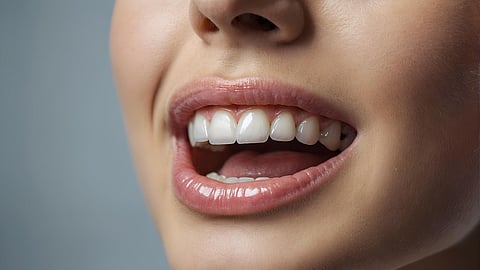With weight-loss injectables such as Ozempic, Wegovy, and Mounjaro increasingly in the spotlight for their life-changing outcomes, a not-so-well-known side effect has started to emerge, and its touching smiles. Now dentists are sounding the warning call about so-called "Ozempic Mouth," an illness characterized by a variety of oral health maladies.
While the phrase "Ozempic Face", meaning observable fat loss on the face, has been making headlines, dentists are now seeing similar troubling changes in the oral health of their patients. Google Trends says searches about "Ozempic + Teeth" have exploded more than 200% in the last week, a measure of increasing public interest and alarm.
Dr. Sofina Ahmed, a top dentist at Viva Dental, told HELLO! that patients of GLP-1 drugs are showing visible and sometimes permanent impacts on their gums and teeth. The drugs, initially created to treat diabetes and now commonly used for weight loss, affect several systems in the body, including those essential for oral health.
What is "Ozempic Mouth" exactly?
The term describes a new trend of symptoms ranging from dry mouth and tooth sensitivity to gum recession and even early aging of the smile. Dr. Ahmed stressed that as patients concentrate on their weight loss, they tend to neglect how changes in hormones, saliva flow, and decreased chewing activity can instantly affect their oral health.
Among the most reported symptoms is xerostomia, or dry mouth. GLP-1 drugs tend to reduce saliva output, which can leave the mouth vulnerable to decay, bad breath, and gum disease. “Saliva plays a protective role by flushing away food particles and neutralizing acids,” Dr. Ahmed noted.


